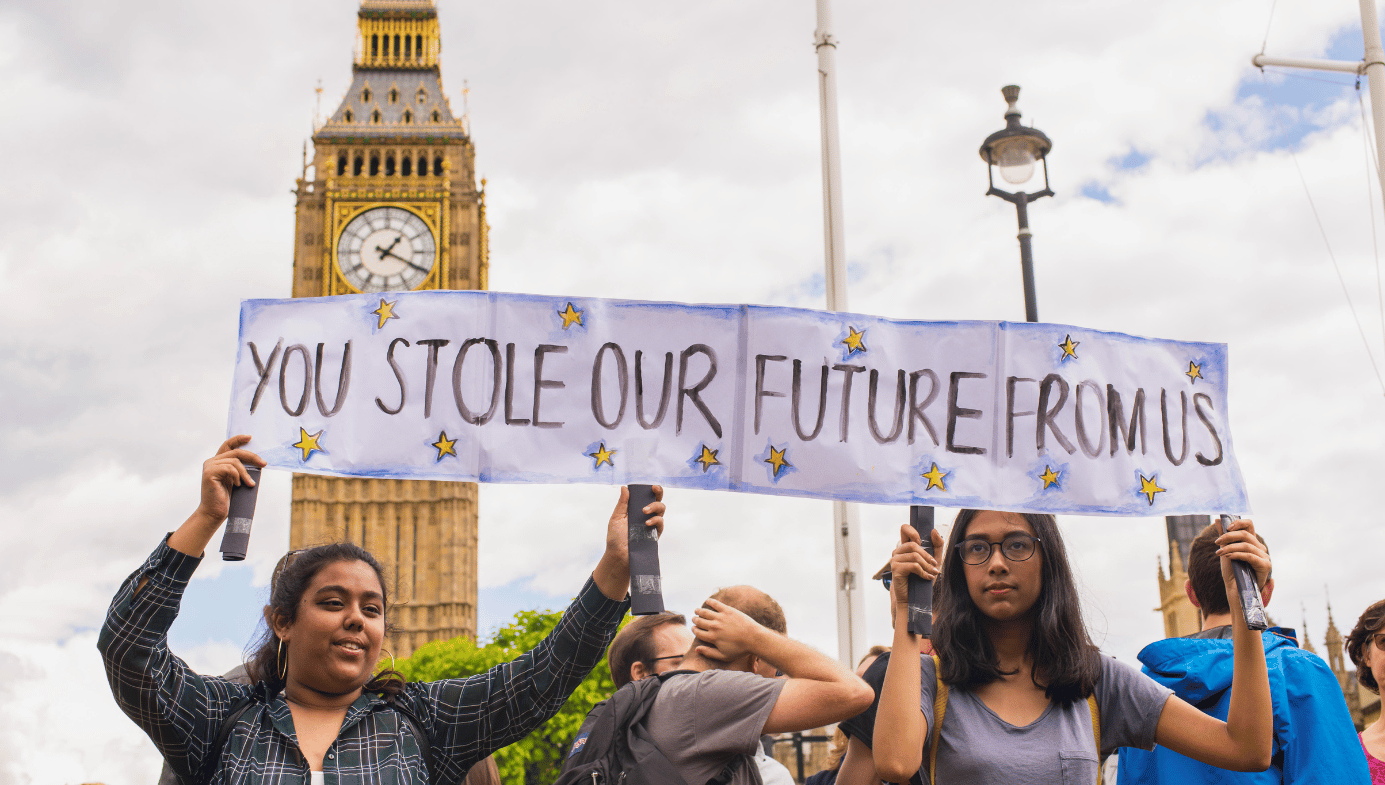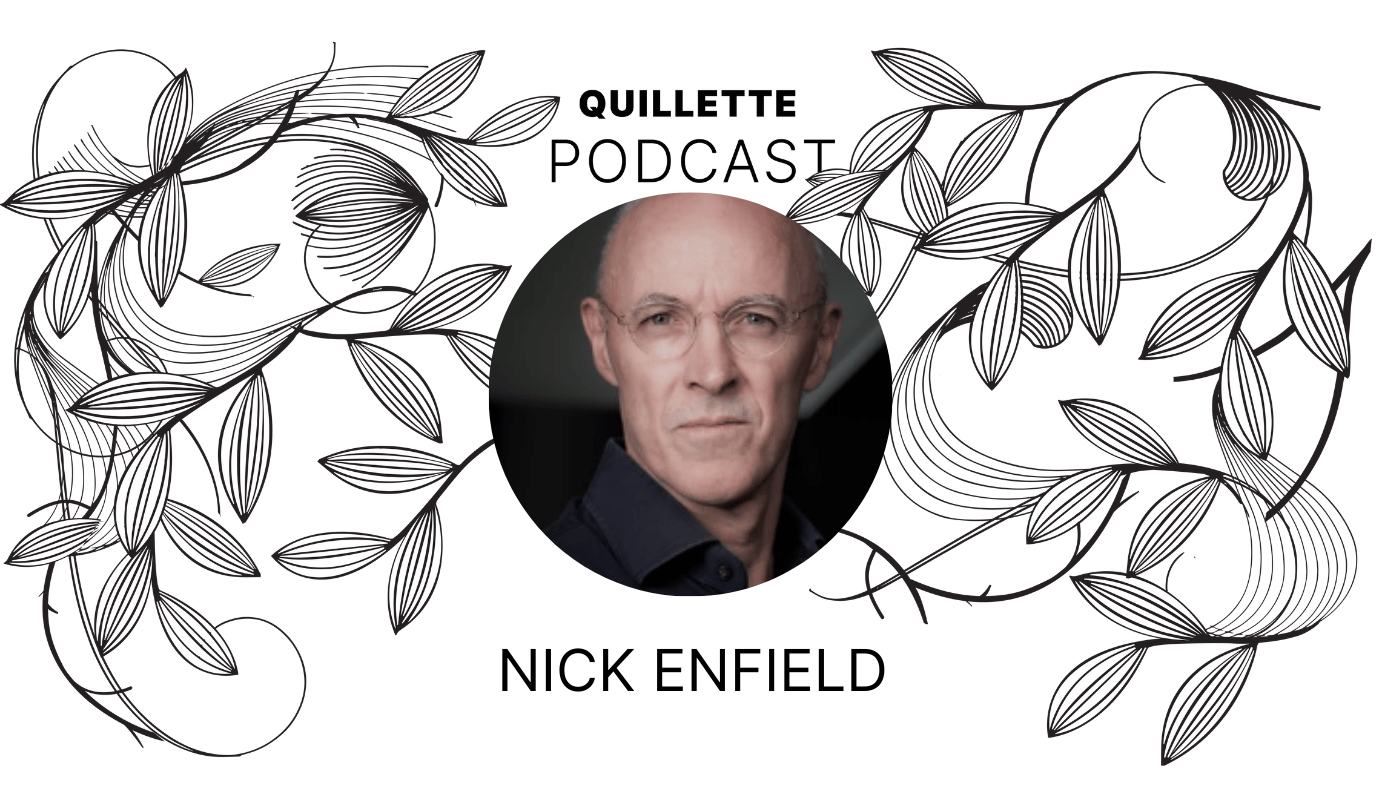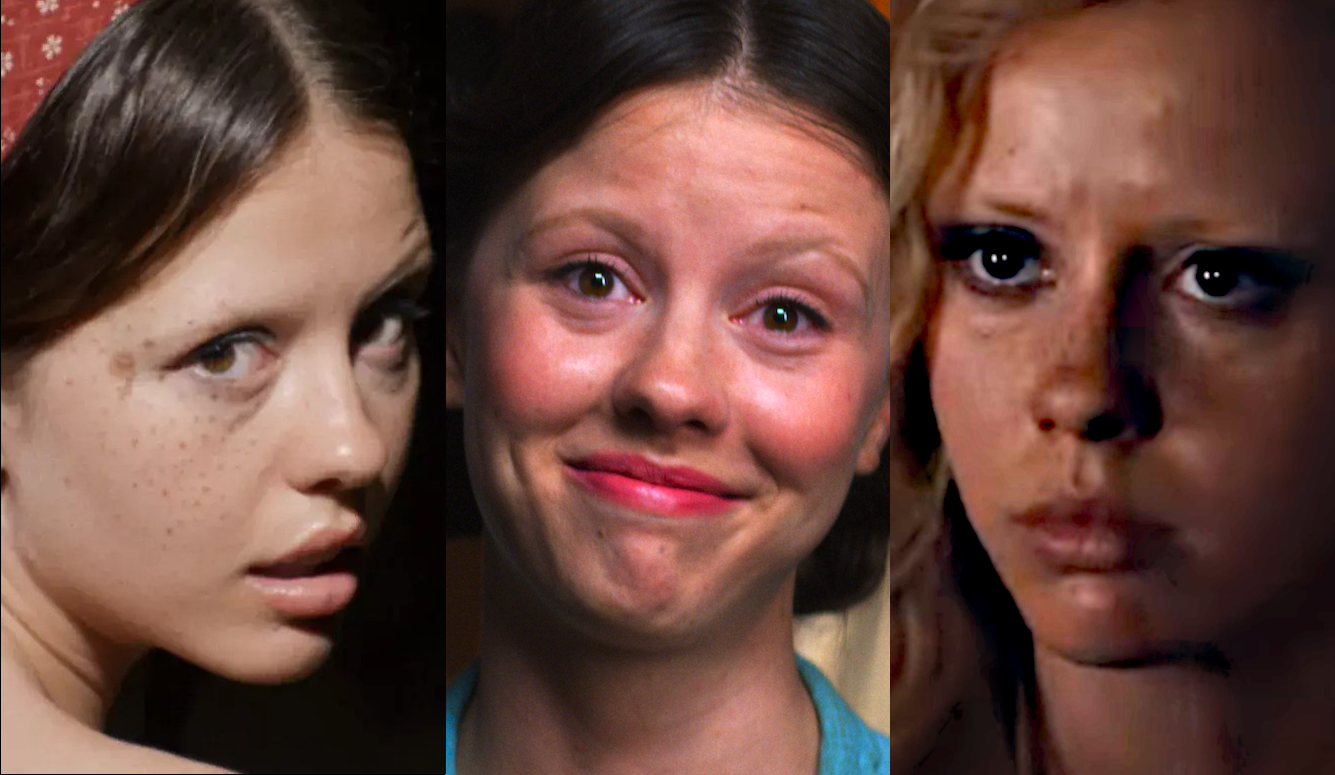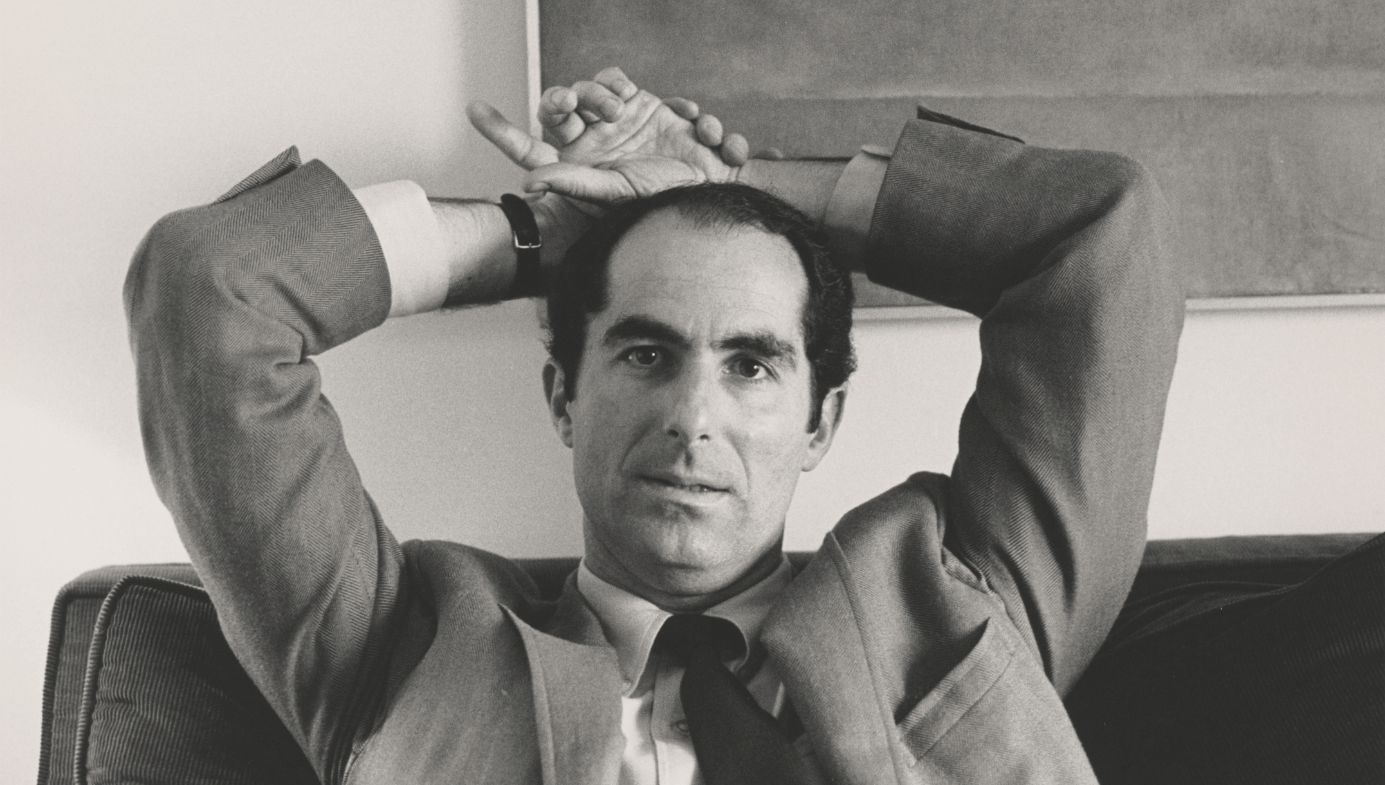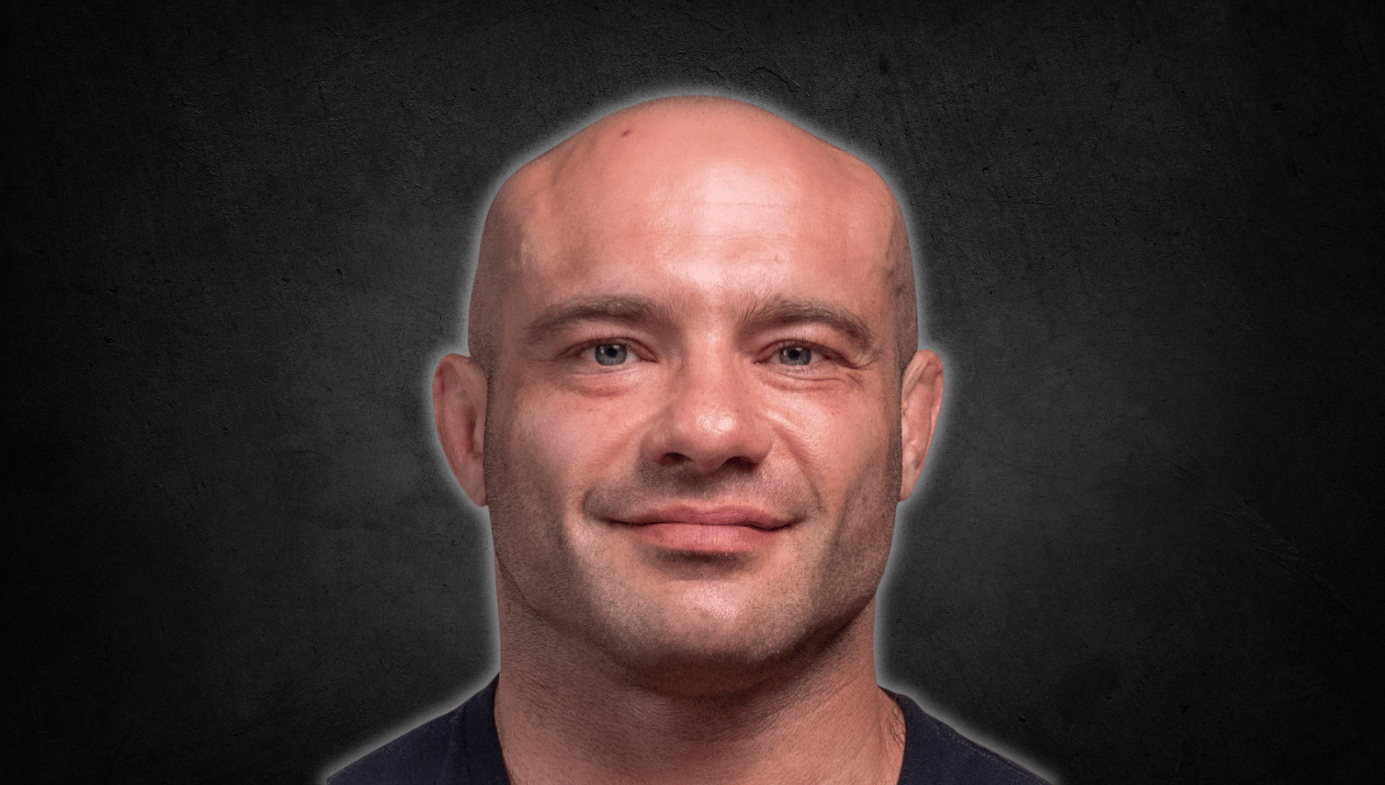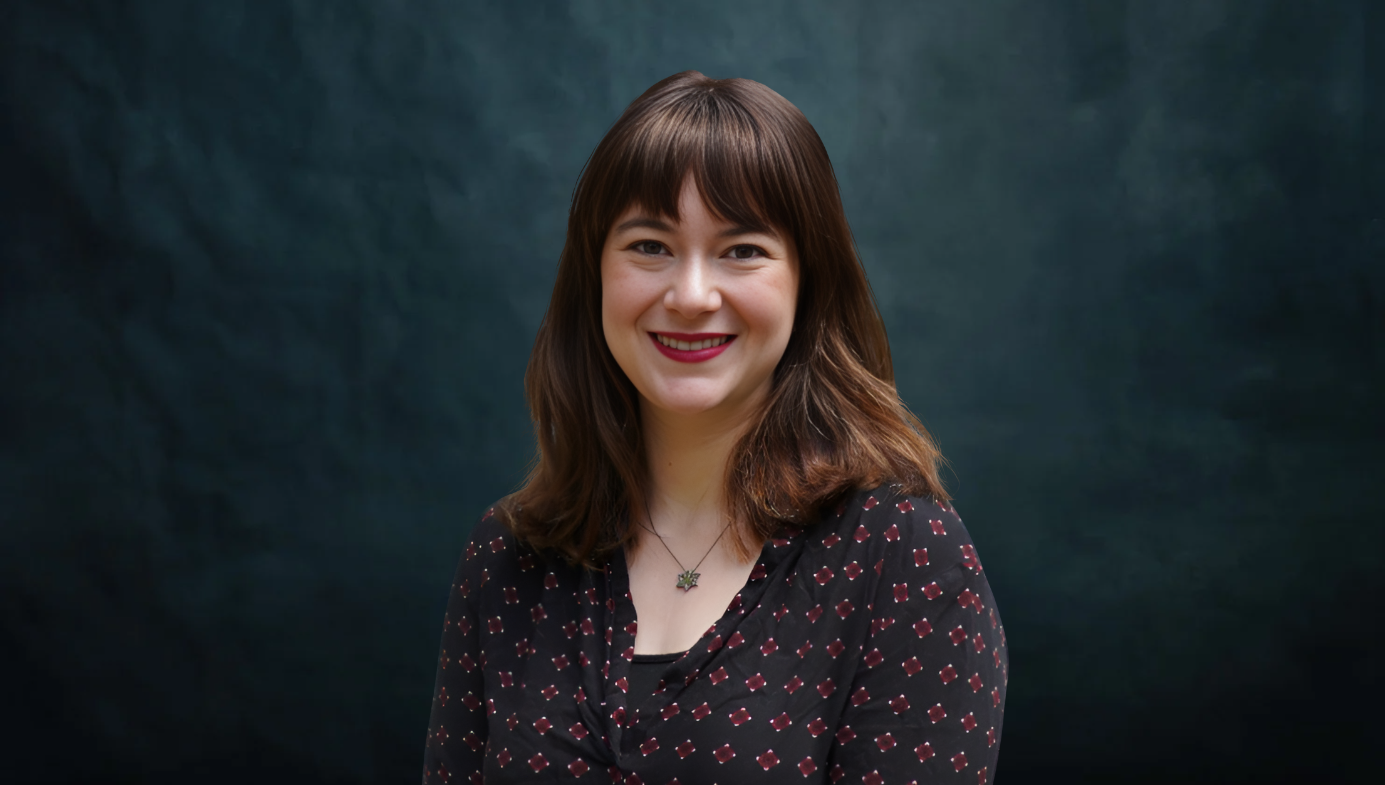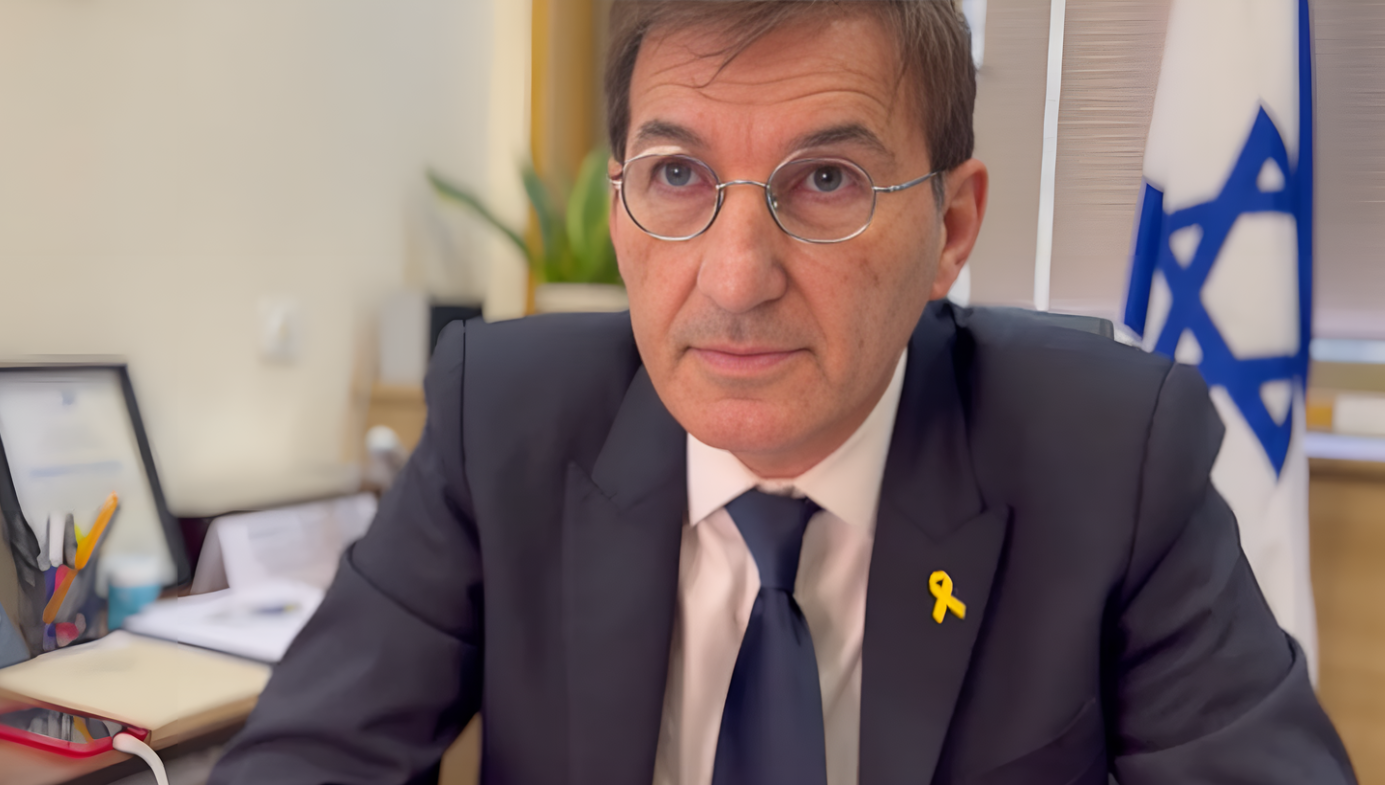Fate, Faith, and Suffering
Coping is not enough. We must strive to live.
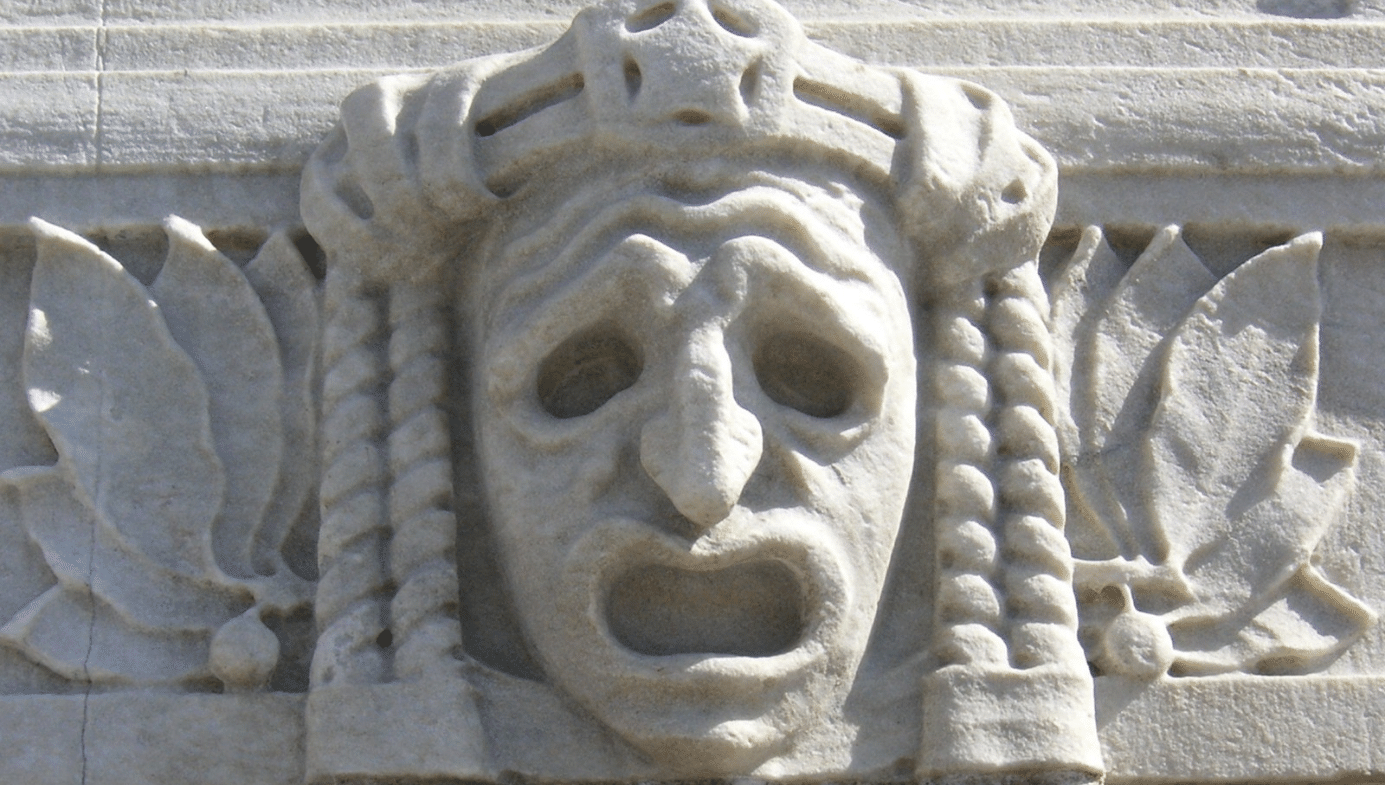
I.
“Fate,” says Viking Prince Amleth in Robert Eggers’s recent historical drama The Northman, “has no mercy.” We have lost touch with the brutality of this idea. In modern life, fate is usually invoked to explain good events or to explain away bad ones: “Everything happens for a reason.” There’s something comforting about attributing one’s circumstances to the larger flow of an all-knowing and wise universe. But if everything happens for a reason, that must also include the other side of the ledger: illness, disability, poverty, trauma, violence, loss—those things over which we have limited control and which make life tragic. If happiness is cosmically deserved, then so is suffering—an increasingly difficult case to make when looking into the eyes of the sufferer.
But some people suffer more than others for no good reason and nothing will ever make that okay. This is among the hardest things to accept in life, especially if that person is you. It has been explored in the Book of Job in the Old Testament and in The Myth of Sisyphus by the philosopher Albert Camus. For Job and Sisyphus, suffering is a fate they have no choice but to accept. But within that acceptance lies the possibility of transcendence. This truth doesn’t go over well in modern culture and politics. It can seem fatalistic or “negative”—a way of explaining away or even justifying the suffering of others. So much of our culture and politics is given to providing a moral explanation for the suffering of the world in the hope of changing it, as though everything tragic in life has a political cause. It has become something of a compulsion in modern life to blot out the suffering of the world in one’s own mind by assuming the correct political stance before truly understanding or even really looking at it.
I, for one, am grateful that such a compulsion exists; it’s better than indifference or judgment toward people who are suffering. But fixating on the suffering of the world in the abstract can come at the cost of failing to honor the suffering that exists right in front of us, within us and all around us. There is a kind of pain that exists without an obvious moral or political explanation, arising from nature, God, or reality itself, and which fits no compelling narrative of good and evil. It is something to which other people can only bear witness, or mitigate when possible through words and actions. For those of us forced to carry this cross, it is a kind of fate.
II.
Almost since the moment I became an adult, my life has been shadowed by an invisible disability—a complex and little-understood neuro-immune disease known as Chronic Fatigue Syndrome, or Myalgic Encephalomyelitis (say that 10 times fast). There’s a lot hidden in that name, and some sufferers say they would prefer a term that describes the illness better. Fatigue is the primary symptom, but it’s not the half of it. “Chronic Fatigue Syndrome” just sounds like you’re tired a lot, which may as well be the condition of modern life itself. Whenever the topic crops up, I tell people I have a neuro-immune disease that keeps me from doing a lot of things. If only there were something to call it that was immediately recognizable. Not only is it an invisible kind of suffering, it is also nameless.
Living with this disease is like swimming across an ocean. It is very hard to diagnose or even know much about a disease without reliable testing to find out who has it. It shatters the paradigm of modern medicine through its existence alone. There is no cure, and those who recover on their own are few and far between (though reliable data on the recovery rate is scarce since many sufferers may well be undiagnosed). Not very many doctors are even willing to treat the illness directly, which is why one of my specialists is an hour’s drive from me and the other is a six-hour flight away. The symptoms and severity of the condition vary so substantially it’s hard to even consider it part of the same illness. There is just no guarantee what will happen to you, and many sufferers opt for suicide rather than finding out. You are on your own with this. Nobody is coming to save you.
Rather than profile the disease or compile a list of symptoms, I want to sketch a human portrait of what this experience is like and what has become of my life. It’s like bearing witness to the fallout of your own death and being forced to live amid the ruins. While CFS won’t kill me (though it could make me more susceptible to dying in other ways, according to one of my doctors), it still represents a kind of interpersonal death—a death of the self. We can only really know ourselves in relation to others, and with this condition a person’s links to the world—to other people and to life itself—are burned away. After first getting sick, you are no longer the person you once were. The ego can’t survive without the same baseline of physical energy, and I don’t think people realize how much of their personality and social lives rely on their health and wellbeing. I still mourn the death of who I once was.
I’m pushing 30 now and I’ve never been able to live on my own. I used to train mixed martial arts full time at an academy in New York City and now I can barely take a walk without severe repercussions. I can’t hold a thought for more than a few seconds without some audio-visual cue (and I’m a writer for heaven’s sake!). I can’t stand under the sun or snuggle with my girlfriend for more than a few seconds without getting overheated, nor can I tolerate almost any amount of cold without quivering. I have about an hour and a half’s worth of juice each day before my brain turns to silly putty. I haven’t eaten a full meal in over a year due to something called gastroparesis, which paralyzes the stomach muscles and makes a bowel movement extremely hard work. My diet consists mostly of bone broth and smoothies (and the occasional piece of chocolate). I take about two dozen supplements and medications a day just to get by and have gone through three times as many treatments over the years. I’ve had a chronic sinus infection for seven years and a consistent cold for five (apparently you can have both). I’ve lost over 40 pounds since I was fully healthy and I was considered skinny before. And saying all this doesn’t come close to properly describing the experience. I don’t know if I’ll ever find the words.

My immune and nervous systems are stuck in a vicious cycle of systemic bodily breakdown. I’m exhausted from the immune issues while the neurological issues prevent my body from resting. Imagine being tired and yet unable to rest, hungry and yet unable to eat. If the human body is an interwoven series of processes, with this illness, multiple processes are disrupted in overlapping ways, with each set of symptoms representing their own pathology and treating one symptom might inflame the others. The best path to recovery is to sleep well and let the treatments take effect. But that’s not really a possibility because almost any medication or supplement intended to calm me down creates an adverse reaction, for reasons that have something to do with my neurotransmitters. Many of the treatments I’ve tried have not only failed to work but actually backfired, aggravating my symptoms or even creating new ones like gastroparesis (which developed overnight from the sleep medication Trazodone). I have to live in a semi-permanent flow state to even have a chance of getting through the day. Every waking moment is a kind of endurance test. Ten years on and my condition has gradually and then all at once deteriorated. The longer a person has the condition, the less likely they are to make a full recovery. My body is a microbiological warzone from which there is no reprieve.
When I was a kid I always dreamt about starting a family, having a good career and being part of a community. Now I may never live anything close to a full life, or even know what it feels like to be well again. I can’t explain what it’s like to know this. And yet the most terrifying thing about the illness is grappling with the unknown. It’s possible I will get better, stay the same, or get worse. There’s no way of knowing. Still, I’m luckier than a lot of people with this disease because I can at least get around and look normal. But looking healthy is a curse when you are actually very sick. The disease sits in a weird gray zone between normality and disability where you look fine and can kind of do some things but with immediate and severe consequences that are often unpredictable to you, let alone anyone else. Nobody knows.
III.
It would be one thing if the wider society readily acknowledged and understood CFS/ME so that sufferers were able to find recognition, solidarity, and support with relative ease. But life is not fair. The medical community has been slow to recognize the illness, which also applies to the welfare system and their medical evaluators who determine disability status. (The last time I was evaluated I was told to stand in an awkward position for two seconds. I did it and was denied disability coverage.) The disease falls through the cracks of modern life.
You go to a doctor expecting a diagnosis and they give you a pep talk. I was initially told that I was depressed, which apparently explained why I was experiencing all these debilitating symptoms out of nowhere at 18 years old. I was told I was exaggerating my condition, as though I got some sick thrill out of scrambling between doctors and hospitals when I could be doing literally anything else a teenager might do. One infectious disease doctor told me I had to “deal with my demons” with the weirdest smile I’ve ever seen on anyone in any situation ever. I felt like smacking him. It’s hard to explain how unexpected it is to seek help from a medical professional and have them treat you like a nuisance for taking up their precious time. It’s discouraging as a young person, too, to learn that the world is not necessarily going to help you and may even obstruct you.
Other doctors were nice about it, but in the end it didn’t matter. The message was clear: We can’t help you. I’m still in the process of accessing disability coverage—nobody even told me I was eligible for the dole when I was younger, something that would have saved my family a whole lot of trouble (had I sought disability coverage immediately, it turns out, I would have had a much better chance of obtaining it instead of trying to work). Every time I have to deal with a new social worker or a new doctor I have to sell the reality of my illness and my status as a victim all over again to a new person with a whole new set of biases and blindspots. It requires inhuman levels of patience not to take this stuff personally.
For various reasons, many people remain skeptical that this disease actually exists outside of my mind. When the New York Times columnist Ross Douthat wrote a book about his struggle with chronic Lyme Disease—a condition often placed in the same category as CFS—some reviewers were skeptical. I’ve never really understood why anyone would be deeply invested in this sort of an explanation. I, too, am a believer in the power of the mind to influence the body, but I’m a bigger believer in the power of the body to influence the mind. I can’t imagine that anyone with this disease actually believes their condition is psychosomatic, which is a polite way of saying you are mentally unwell and your body is reacting. Still, it’s worth erring on the side of assuming good intentions. For the leftist writer Freddie deBoer, a writer I admire in many ways, CFS would represent just another form of suffering used to justify treating people with deference and guilt.
Resistance to recognizing an illness due to one’s worldview is understandable up to a point, I suppose. But there’s a deeper structural reason this disease has gone under-acknowledged for so long and critics like deBoer don't seem to be willing to accept it. If CFS/ME were recognized as unquestionably “real,” and if the psychological issues associated with it were seen as an outcome of the disease and not the other way around (as is typically assumed), it would likely involve restructuring our criteria of sickness and health and reconfiguring modern medicine. All sorts of preventative measures would have to be introduced for these complex chronic conditions, as well as extensive treatments for people that already live with them. Far more research would have to be done, and that costs money. Plus, it’s just a cold and heartless disease to try and treat. Doctors are human beings and would naturally prefer to treat people with more straightforward conditions that are more rewarding and keep their medical authority intact. It’s difficult to get a person to understand something when their salary (or their professional authority) depends on their not understanding it:
One thing you learn very quickly as a patient is that so much of medicine/treatment depends on a doctor’s own personality, beliefs and preconceptions. You have to quickly learn to judge a doctor the second you meet them. 🧵 1/
— Katie Bennett-Hogg (@npo_speechie) August 14, 2022
The point is not to go on about how hard or unfair this is, but to show how this illness impacts an otherwise normal human psychology. The disease reverses the flow of incentives that otherwise propel human beings toward their own potential. The things we generally take pride in—working hard, being tough, getting through it—potentially make the illness worse. Human beings unconsciously put a lot of emphasis on how strong we think we are—it appears to be the most sensitive part of the human ego—and with this illness you can’t push yourself without drawbacks. We are anti-fragile creatures that, like diamonds, are formed under pressure, and this illness counteracts that essential pathway to development. It’s hard to do nothing when the nothingness has been forced on you. It is hard to say yes to life when life is constantly saying “nope” back at you.
There is no more valuable human resource than our energy. Nothing would exist without it. We are energy—every process in the body requires cellular energy—and when you have less of it it’s hard not to feel like less. As legendary NFL coach Vince Lombardi once put it, “Fatigue makes cowards of us all.” Without healthy natural energy, time is experienced differently. It slows down to a weird internal rhythm—making for a discrepancy between physical time on the outside and psychological time on the inside. This “time-gap” is something similar to what prisoners have described of solitary confinement. I’m better than I used to be at navigating absurd amounts of time without energy by resting in the spaces between breaths and the moments between moments. But the larger the time-gap, the further from the reality of other people you are. One of the signs of a suicide case is that they feel stuck in the eternal present. I doubt anybody who says they wouldn’t consider suicide with this much aimless time on their hands.
The loss of energy, the pain, the symptoms, the disability, the loneliness—all of this desensitizes a person to what’s going on outside of them. It takes tremendous effort to really absorb a sunset or a beautiful face when your body is in a state of exhausted unease. The illness necessarily fixes your gaze inward. Thought patterns grow dark and cyclical. You get stuck. You overthink. You doubt yourself. You live in your imagination. Your personality changes. You develop little phobias and pathologies that weren’t there before, like envisioning your toenails being torn off. Most of what you see and experience only reminds you of your own worthlessness and inferiority. You’re angry at everything and everyone, but without any means to express it. There’s nobody and nothing to be angry at. Nobody is to blame for this, so you’re angry at nobody, at nothing, at yourself. This does something to a person. You become wary of things and weary of life. Forever expecting life to get worse, as that’s the only pattern you have known for years, you gird yourself for what’s to come. When good things happen, it’s always a bit surprising.
This illness has stolen the freedom of my body. I don’t have the breathing room to screw up in the same way as other people. Eat some food one night or express negative emotion and the body punishes you for it. In this way, every decision you make involves a calculated risk-assessment. Do I go on a date with this girl? What if we end up going on a walk and my body starts to fail? And how much do I tell her about all of this, anyway? The disease is like a prison of one’s body and mind. I would never have imagined that something like this even existed, let alone that it would actually happen to me. Things are taken from you that you didn’t know you had. We don’t realize how adaptable a healthy human body is until we no longer have one. I never thought I’d be so nostalgic for an unapologetic bite of food or to have a normal healthy night of sleep. I miss food. I miss a lot of things. I miss my life. I barely even remember what it even feels like not to be in survival mode, which kind of makes me want to cry. It says something of the inherent tragedy of human life and the imperfection of nature that something like this even exists.
Yet I’m reminded here of a quote from Achilles: “Everything is more beautiful because we are doomed.” As an expert at the Institute of Neuro-Immune Medicine in Florida told me recently when I visited, CFS probably stems from the same basic dysfunctional bodily process but there are a number of different ways to set this process in motion—a viral or bacterial infection, autoimmune issues, exposure to mold, even post-traumatic stress. Nobody knows what that process is or what is actually happening at the deepest levels of the body. This disease has probably always been around, though it also may be more widespread due to the conditions of modern life and globalization. My specialist holds out some cautious optimism for a potential cure or at the least better treatments someday in the future. As more research is conducted into Long COVID symptoms, there may be hope yet for some serious studies and new information. I believe one day they will zero in on this illness and we will look back at the time when people were disbelieved as inhumane. But the prospect of an eventual cure, too, is a kind of fate—something outside the reach of my conscious control.
IV.
I’m not crazy. I’m not weak. I’m certainly not a faker. I’m sick. I have a goddamn disease. Just getting that feedback from society means more than I can say. But no matter what happens to me, I’ve come to realize, I am still a human being and still part of this world. Like Ralph Ellison’s protagonist in his classic 1952 novel Invisible Man, I’m ready to get out of the hole in the ground I’ve been living in, because “even an invisible man has a socially responsible role to play.”
It’s natural to feel subhuman when the conditions of our lives only seem to reinforce that feeling and, honestly, I’ve come to develop somewhat of an inferiority complex from watching others do things I no longer can. It’s taken a lot of work to realize that there is still me as a person apart from the condition—my consciousness, as it were—and if there’s some degree of consciousness there must also be some amount of responsibility and choice, even if we don’t fully control the outcome and didn’t choose our circumstances. I try to strike a balance between honoring my suffering and accepting my fate. This is a point of deep cultural contention. Broadly speaking, the Left emphasizes systematic victimization along the lines of group identity while the Right emphasizes personal responsibility at the level of the individual. It’s a shame our polarization spiral has cut us off from absorbing the truths of the other side. I try to employ some balance of both.
On the one hand, it’s far too easy for someone who’s victimized to forget about their victimization in the day to day and blame themselves for their own negative experiences. Coming to terms with the fact that I am disabled and that I am victimized, even if I don’t exactly look it, has allowed me to cope with and understand myself and my condition and my relationship to other people better. But coping is not enough. One must strive to live. I believe balance is built into the very structure of the universe and that’s why it works better than gravitating toward one extreme or the other, as human nature often inclines us. It’s possible to take responsibility for a terrible situation without necessarily blaming yourself for it. Lord, grant me the strength to accept the things I cannot change, the courage to change the things I can, and the wisdom to know the difference. There are no absolute answers to the problem of human suffering. Only a set of limitations and possibilities under which we make individual and collective decisions.
There isn’t much room in the culture for my illness. Invisible disabilities, complicated chronic conditions and the like are not very dramatic in our moment. There isn’t much cultural clout or raw political or moral power to be had from them, which is another reason I find the idea that people are faking these conditions so ridiculous. It takes an absurd amount of discipline, earnestness, and intention to navigate something like this, qualities which are severely lacking in this thing we call a culture war. But still, I think a culture that can appreciate these sorts of conditions would be a better, more humane one, and that’s certainly worth fighting for.
Suffering and morality are deeply intertwined. The idea that someone is suffering or has suffered more than us along a particular dimension challenges our sense of being a good person. This is something many people go through at one point or another in their lives when becoming part of the world: Feeling a particular way about the inequality of human suffering that exists all around us. It is a kind of moral terror that you are somehow implicated in another person’s suffering by not sharing it or doing anything about it. Feeling this way is a necessary stage of human maturation, and it’s not surprising that it is mostly college-age kids whom this realization hits so hard. It’s a good thing, too, I believe, that the tendency to turn away from the suffering of the world, or worse, to assume there must be a good reason for it, is becoming less sustainable for more people. But as one moral explanation for suffering goes out of this world, another comes in.
Much of what is considered “woke” discourse these days is merely an effort to give human suffering in modern life moral meaning. It comes from juxtaposing human advantage to disadvantage and then filling the space between them with outrage. On the one hand, I appreciate it. There is clearly a vacuum of moral meaning in society that something has inevitably filled, and the human need for absolution hasn’t been diminished by modern society. But this is only a start.
There is so much suffering in America and the world at large that screams out for moral explanation. The racial “reckoning” of 2020 and similar movements in the United States come from an unstated desire for moral meaning, identity, and certainty amid what the writer Uri Harris has called our amoral society. It would be better if this were openly acknowledged. Human beings crave innocence against the inherent guiltiness of the world, and the cultural politics of today’s Left look very much like an ideology of moral innocence against the inequality of groups that has existed throughout human history. I don’t have any new or interesting things to say about wokeness or its origins, nor do I have an answer for why it’s focused on group and historical inequality at the expense of other things, beyond the fact that gender and race are visible and obvious and make for an easy proxy for moral authority. But historical evil along the lines of group identity is but one point of moral concern among many others, and the mistake is in believing that any individual or group is totally innocent or guilty.
Each of us is ensnared in the hard and complex moral realities of human life from which there is no escape. “People who shut their eyes to reality simply invite their own destruction,” wrote James Baldwin, “and anyone who insists on remaining in a state of innocence long after that innocence is dead turns himself into a monster.” We are part of the world, and everything in it reflects something within ourselves. Innocence is not something we can lay claim to through ideology. It can only be earned through our actions.
I don’t believe suffering confers moral authority or innocence. It may confer a bit of wisdom or some “equipment for living,” as the literary critic Kenneth Burke put it, but that depends entirely on how we deal with it. I’m not trying to guilt-trip people and freeze them into self-consciousness or make them admit weird things about themselves. That just makes me feel guilty. Power, sadly, doesn’t come prepackaged with responsibility, and moral power is no exception. It’s not about getting the moral upper hand in social situations but inspiring others to feel more gratitude for their health while affirming the reality of conditions like mine without ever failing to illuminate our common humanity. If people are more willing to listen to me on this subject because of my experience, that’s great (almost everyone accepts a soft version of “standpoint epistemology,” according to which someone who’s had a given experience is more likely to know something about that experience). Yet it’s another tragedy of human life that deep and prolonged suffering is just as likely to obscure one’s vision of reality as it is to illuminate it.
V.
A different vision of human suffering would allow for an acceptance of one’s fate without losing something similarly powerful: Faith. This is deeper than hoping for a good outcome. Having faith means you still believe in human life and meaning, regardless of the outcome of our own lives. Such a vision would likewise refuse to frame suffering in zero-sum terms, as though it’s your suffering against mine and whoever has more of it is tough or something. I always thought, after getting sick, that my pain was so much bigger and more important than everyone else’s, and I let them know it. This didn’t help my case.
It also just wasn’t true. Human beings absorb pain in the same fundamental way. Suffering is relative to what we are used to and what we have come to expect from life, so that even seemingly small things can cause genuine sorrow. If there’s one thing my illness has taught me, as alienating and bizarre as the experience has been, it’s that human suffering is interwoven: Our hearts bleed alike. Individual consciousness is one piece of the larger puzzle of human consciousness in which we all participate in the eternal process of life and death, pain and joy, good and evil. We’re in this together.
The strongest take on human suffering I’ve ever encountered outside the spirituals came from Viktor Frankl, author of Man’s Search For Meaning based on his experience in various Nazi concentration camps. To summarize his philosophy: Every situation, no matter how much suffering is involved, has a correct human response. The answer to the problem of human suffering changes from person to person and moment to moment. Human beings are meaning-oriented creatures who live off stories. For Frankl and others in the camps, those who found the deepest and most personal reasons to stay alive, the most compelling story about their own history and future and their relationship to other human beings and to life itself, were more likely to pull through. Finding meaning can be a life or death affair.
The essence of Frankl’s approach is to live as if you are from the future so as to give our choices in the present more urgency and immediacy, as though we have already lived through this and have come back to correct any mistakes. This is but one way of rising above the suffering of the moment to see oneself and one’s life clearly and objectively across time. This gives the suffering of the present a deeper meaning worth living for. Despair is suffering minus meaning, wrote Frankl. The moment our suffering is given a larger purpose, it no longer carries the same unbearable weight of cosmic injustice and we can proceed with spirit.
What I find so compelling about Frankl’s system is its pragmatism. In these hellish circumstances, we have to use whatever works—humor, love, thoughts of the future, remembrances of the past, God, nature, art, whatever gets you through the day. It’s a flexible system free of dogma and tailored to the individual. Find some greater meaning to your life that can transcend your suffering. Make it personal. Make it felt. This is what people have been doing for all of human history. The challenge is to apply the principle to modern life. We can find meaning through creation, through working toward some goal or task. It can also be found through having an experience or an encounter with a human being, to experience love. Even when confronted with an unchangeable fate (like an incurable disease), meaning can be found through changing our attitude toward our fate. “In such cases we can still wrest meaning from life by giving testimony to the most human of all human capacities: the ability to turn suffering into a human triumph.” Frankl referred to his vision of human suffering as one of tragic optimism: Retaining life’s meaning in the face of tragedy; accepting one’s fate without giving in to despair. This capacity is what makes us human.
Even in the worst situations, there is always some level of choice with respect to the attitude we adopt toward our fate. Of fate, Frankl wrote:
How misguided it now seems to us when people simply complain or rail against their fate. What would have become of each of us without our fate? How else would our existence have taken shape and form under its hammer blows and under the white heat of our suffering at its hands? Those who rebel against their fate—that is, the circumstances against which they cannot help and which they certainly cannot change—have not grasped the meaning of fate. Fate really is integral in the totality of our lives; and not even the smallest part of what is destined can be broken away from this totality without destroying the whole, the configuration of our existence.
In other words, what matters is not what we expect from life, but what life expects of us.
The human predicament, as Frankl sees it, is not that life is meaningless, but that it is so infinitely and kaleidoscopically meaningful we can barely conceive of it other than in flashes. It doesn’t make sense to ask what the meaning of life is; the key realization is that it is we who are asked—it is life that poses the question only we as individuals can answer. The struggle is to relate our own sense of purpose to the larger human journey for meaning to feel “at home in the world,” as Hemingway famously put it. Frankl refused to see human beings as “closed systems” somehow separate from the world and other people. Whatever meaning we ultimately attain will somehow be involved in the lives of others. It is our connection to other people through which a sense of meaning arises. The meaning of life is other people.
VI.
I have dealt with suicidal thoughts and ideations pretty much since the moment I fell ill and this journey began. The idea of simply fading out of this world can at times be the only thing that gives me any comfort. I’m still learning to accept my fate. It’s okay for things not to be okay. I wish more people were okay with that. But accepting one’s fate means having faith in our own life in particular and human life in general. For me, God is anything that keeps me from committing suicide. Faith is about survival.
I know everybody says this now, but I’m tired. I’m really fucking tired. I’d do anything for just one day where I didn’t have to feel this way. Sometimes I feel like a dead man walking. But there’s another, deeper part of me that refuses to die—that is completely unfazed and unaffected by everything that’s happened. This could simply be the will to live, or some divine spark, or even a future self of some kind, but whatever it is, I believe it’s a crucial aspect of our humanity. It’s a certain knowingness arising from deep within that life is worth living, no matter what. The more I can connect with that force, the better I can accept and transcend my fate.
Sometimes I wake up at night with an overwhelming feeling of dread, like I don’t have a home in this world anymore. I think it has something to do with how far my life turned out from what I imagined—the glaring distance between the image conceived and the actuality experienced. It’s a kind of panic or guilt toward all the things I would or should have been had things been otherwise. But the thought that soothes me in such moments is that I cannot escape my fate. It couldn’t have been otherwise by virtue of the fact that it simply is. I’ve been through something, I’m going through something, and in my better moments, all the pain, the uncertainty, the rage, everything that’s happened throughout this whole ordeal feels worthwhile in some indescribable way. I know now that I’m alive. I’m not sure I knew that before. And with the reality of life comes the reality of death. I’m going to die one day. And I can make the best of this life despite my circumstances or not. It’s up to me to use the impending reality of death to live more fully today.
I have this recurring dream that I am back in my local high school, the last place I was fully healthy, and I can’t graduate somehow because of my illness. Sometimes I can’t read the test, sometimes I lose my backpack, sometimes I get berated by a disappointed teacher. For years I didn’t understand the meaning of these dreams. But I think I missed an important initiation rite when I became ill that left me feeling incomplete in some way.
In another way, this experience has been its own kind of initiation rite into adulthood. I was kind of a moral idiot before all this went down (which, in fairness, partially had to do with the fact that I was still practically a child). To quote Dostoevsky, “suffering is the sole origin of consciousness.” Suffering is consciousness. In our evolutionary history, we needed to suffer to find out what to do and not do. I’m grateful, too, to have experienced so much psychological time, because, in fact, there is still time yet. I know deep down that there is so much more to learn from this experience, something it’s trying to teach me, before I take my final breath. There is a Samuel Kronen that exists somewhere in the future that only I can become, and he smiles on me. He wants me to make it.
Suffering is bad and we should mitigate it wherever and however possible. But few situations in life are without any potential upside. Without romanticizing what has happened to me, I think the more pain we experience while remaining conscious and without coarsening emotionally, the deeper our capacity to experience joy becomes. Leaning into that range of emotion is so very human. When the pain is too much to bear, I use whatever internal resources are available. I’ve learned how to live in my imagination and derive satisfaction from what arises there. I use the feeling of love, of everyone who’s ever taken time out for me and for humanity itself, an endless stream of well wishes and gratitude that no amount of pain can take away. That love is mine as well as everybody’s. I try to keep a sense of humor about everything, because, let’s face it, the absurdity of my situation is, when you think about it, faintly funny too. If you can laugh at something, you can be free of it.
Suffering carries the potential to deepen us as human beings by raising the threshold for what we are capable of accepting in life. Sometimes I wonder if enlightenment may simply be a matter of changing one’s expectations. The more one can take from life without losing faith in life is pretty much the definition of a strong character. In my better moments, I see everything that’s happened to me as an opportunity to rise to the occasion and test my fighting spirit. This is my humanity on the line and I’m not going down without a fight.
VII.
I’m not looking for any kind of special holiday for this illness. As for my advocacy, I simply want CFS/ME to be acknowledged by modern medicine and the welfare system so there’s more funding for research and it is easier to make disability claims. (It would also be nice if the name of this disease were changed to something that sounds less pathetic.) This illness is a metaphor for all sorts of invisible suffering, and by understanding the disease, we can broaden our collective awareness of the suffering within and all around us. Bringing consciousness to suffering is the first step to alleviating it.
There is so much pain in the world, it’s overwhelming to even begin to imagine for a single moment. But the universe is fractal, meaning we can approach the universal and the human through the personal and the particular—we connect with life itself through the vessel of our own lives and our own bodies which reflect life itself. Just look within yourself at your own pain and spread that sensitivity and care and curiosity to the suffering of others. When my suffering and your suffering meet, we can truly see each other as human beings, and what deeper human need is there than to be seen?
Pure gold from James Baldwin in 1960 on the inherent sanctity of human life.
— Samuel Kronen (@SalmonKromeDome) September 21, 2020
“From my point of view, no label and no slogan and no party and no skin color, and indeed no religion, is more important than the human being.” #humanism pic.twitter.com/ciFDhviH2i
We all have a fate. This does not mean anything is set in stone. Fatalism is for people who have given up, and I haven’t given up yet—I wouldn’t still be alive if I had. But while I see no reason to believe things couldn’t have been otherwise, they aren’t otherwise. By accepting what simply is, we give ourselves over to the force of life—something far more powerful than anything the human ego might conjure up. This is an active and not a passive acceptance that can lead to real change. “Not everything that is faced can be changed,” James Baldwin wrote, “but nothing can be changed until it is faced.” Sometimes life, by coincidence or design, calls forth the human spirit buried beneath the veneer of modernity. We are meant to be so much more than we are. Within the limitations of our lives there exists an entirely new set of possibilities we never before considered actualizing. And by actualizing those possibilities they, too, become our fate.
I never thought I could swim across the ocean of this disease, but here I am, still doggy paddling. In the end, my condition is really just an exaggerated form of the human condition, in all its vulnerability and transformational power. It’s been a hard path that I would never have chosen. You could call it my fate, and I cannot escape my fate. “Amleth, always without fear,” says a Norse shaman as he initiates the prince into adulthood, “for your fate is set and you cannot escape it.”

